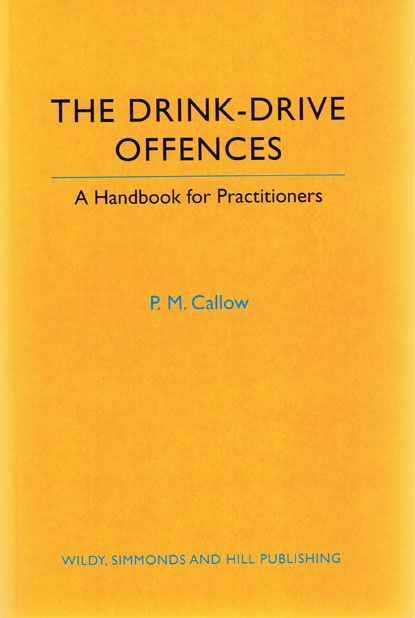
The statutory provisions on drink-driving are set out in just fifteen sections of the Road Traffic Act 1988, and two from the Road Traffic Offenders Act 1988, but there have been over 700 appeals to the Divisional Court on points of law since the Acts came into force. The result is a body of law which is technical and complex, covering a wide array of matters.
The Drink-Drive Offences provides a practical, comprehensive, accessible and up-to-date account of this broad and intriguing area of law. It traces the procedure from preliminary testing to penalties, taking the legislative provisions in sequence and explaining the effects of the case law.
The routines for preliminary testing, and for requiring and analysing specimens of breath, blood or urine, are examined. This includes the recurring question of the reliability of the breath analysis instrument and the circumstances in which a blood or urine specimen may be required instead of a breath specimen.
The constituents of the offences are explained, in chapters on the excess alcohol offences, the offences of being in charge, the offences of being unfit to drive, and causing death by careless driving when under the influence of drink or drugs.
The statutory assumption that the level of alcohol at the time of the offence was no less than in the specimen receives special attention, along with the “hip flask” defence, where the motorist asserts that it was alcohol consumed after driving which accounts for being over the limit.
A chapter is devoted to the offences of failing to co-operate with preliminary tests and failing to provide specimens, with full consideration of what constitutes a “reasonable excuse” for these purposes. Finally, the penalties are set out, including special reasons for not disqualifying.